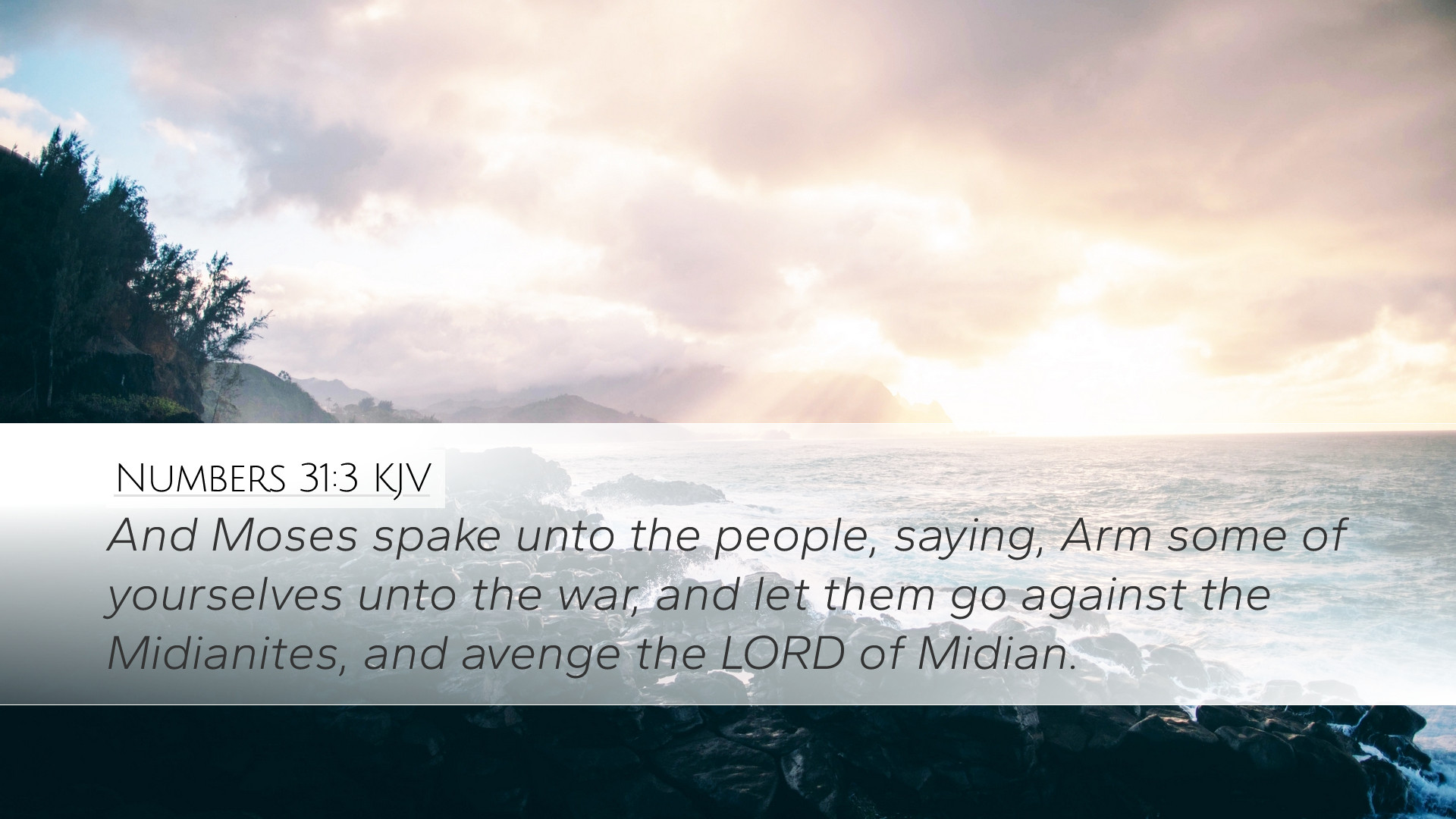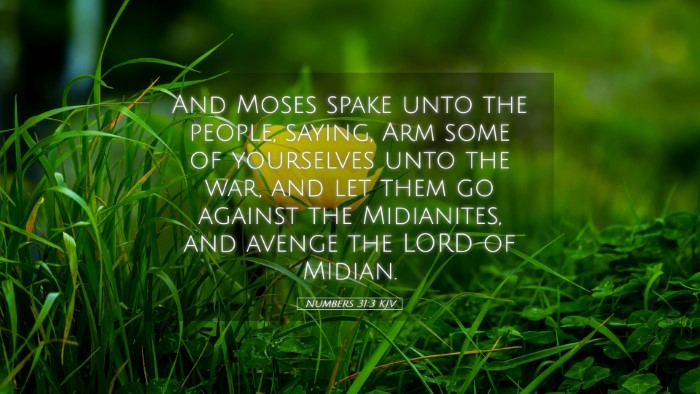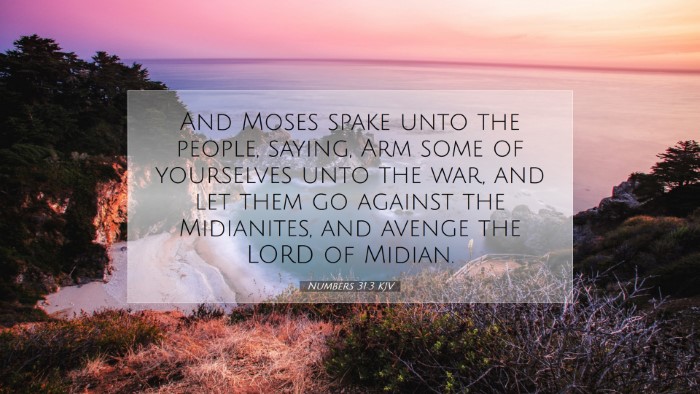Commentary on Numbers 31:3
Verse: "And Moses spake unto the people, saying, Arm some of yourselves unto the war, and let them go against the Midianites, and avenge the LORD of Midian."
Introduction
The verse in Numbers 31:3 marks a pivotal moment in the narrative of the Israelites' journey through the wilderness. It is a command given by Moses to the people for a military expedition against the Midianites. This command carries significant theological implications and reflects the character of God, as well as the moral responsibilities of His people.
The Context of the Command
To understand this command, it is essential to consider the historical context. The Midianites had not only opposed Israel but had also led them into sin (Numbers 25:1-3). This confrontation is God's response to the Midianites' idolatry and their seduction of Israel into immorality.
Matthew Henry highlights that the war against the Midianites was not merely to gain victory but to enact divine justice. The call to arms serves as both a disciplinary action against the Midianites and a purification of the Israelite community.
Divine Sovereignty and Human Agency
In this command, we also see the interplay between divine sovereignty and human agency. God commands the Israelites to take up arms, suggesting that while God has ultimate authority over the outcome, He also uses human efforts to bring about His purposes.
Albert Barnes notes that the phrase "avenge the LORD" indicates that the conflict is not merely a political or territorial campaign but rather a spiritual battle. The Israelites are seen as instruments of God's judgment, which adds a dimension of solemnity to their mission.
The Nature of God’s Justice
The command to "avenge the LORD" provokes thoughts about divine justice and retribution. Adam Clarke emphasizes that God's justice is perfect; it is not arbitrary but based on the transgressions of the Midianites. This event urges the faithful to recognize that sin incurs consequences, and God's design for justice often involves His people.
This perspective encourages reflection on the seriousness of sin and the necessity of addressing it within the community, be it through corrective action or spiritual warfare against the principalities of darkness.
Preparation for Battle
Moses's command to "Arm some of yourselves unto the war" indicates the importance of preparation. Matthew Henry notes that the preparation for battle is paramount, reflecting the seriousness of the task ahead. The people are called to action, which reveals the necessity of being equipped, both physically and spiritually, before carrying out God’s commands.
This can be compared to the spiritual armor described in Ephesians 6:10-17. Just as the Israelites were called to prepare for a physical battle against a tangible enemy, Christians today are urged to prepare for spiritual warfare against the unseen forces of evil.
Implications for the Church Today
The charge against the Midianites fosters discussion on the implications for modern Christian communities. There lies a parallel in how the church must confront sin and injustice in its midst. Albert Barnes suggests that contemporary believers ought to take a stand against cultural and moral decay by being proactive in upholding righteousness.
Adam Clarke points out that, while the church today is not called to physical warfare, there exists a figurative battle against ideologies that contradict the teachings of Christ. The spirit of Numbers 31:3 beckons pastors and leaders to engage in this warfare through doctrinal purity and moral accountability.
Conclusion
Numbers 31:3 serves as a powerful reminder of God's sovereignty, justice, and the active role His people must play in His divine plan. The call to arms against the Midianites transcends mere historical context; it provides an essential framework for understanding the nature of God’s commands and the obligations placed upon those who follow Him.
In conclusion, this verse not only reveals God as a God of war but underscores His ownership of justice and righteousness in all circumstances. For pastors, students, theologians, and scholars, the reflections upon this verse encourage deeper exploration into the divine-human relationship in the pursuit of holiness and moral rectitude in today’s world.


